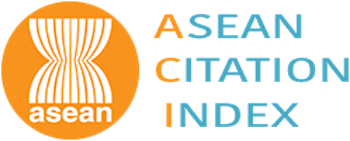Applications of Transcranial Magnetic Stimulation in Post-Stroke Dysphagia
Keywords:
transcranial magnetic stimulation, deglutition, dysphagia, strokeAbstract
Objectives: To summarize the main findings of using transcranial magnetic stimulation (TMS) and repetitive TMS (rTMS) in physio-logic swallowing response and to review the parameters related to rTMS protocols in post-stroke dysphagia (PSD) treatment.
Study design: English-language literatures published from 1st January 1999 to 20th August 2020 were sought using PUBMED, MEDLINE, and Web of Science; and MeSH terms of transcranial magnetic stimulation, swallowing, deglutition, dysphagia, and stroke. Nineteen randomized control trials (RCT), six non-RCT, and one systematic review article were included.
Setting: Rehabilitation centers and university hospitals in Europe or Asia.
Subjects: Normal population and post-stroke dysphagia patients.
Methods: A narrative review of all the relevant papers related to TMS or rTMS was conducted.
Results: TMS is used to investigate swallowing physiology and to treat dysphagia. Several experiments have shown positive outcomes of swallowing functions without any serious complications. Two parameters: frequency and stimulation side, have different effects. Low-frequency stimulation has an inhibitory effect by decreasing the cortical excitability while high-frequency stimulation has the opposite effect by increasing the excitability. Low-frequency stimulation applied over the unaffected hemisphere inhibits interhemispheric interaction. High-frequency stimulation applied over the unaffected or the affected hemisphere might facilitate the recovery. Bilateral hemispheric stimulation by using high-frequency was shown to improve outcomes. To alter the cortical signal in swallowing, rTMS can be applied on both pharyn-geal cortical hemisphere and the cerebellum.
Conclusion: rTMS is one intervention which may facilitate neurological recovery after dysphagic stroke. Although there was weak evidence to support dysphagia treatment, the recent studies showed positive effects. rTMS may be beneficial adjunctive therapy in post-stroke dysphagia treatment if a strong evidence protocol is addressed.
Keywords: transcranial magnetic stimulation, deglutition, dysphagia, stroke
References
Sasegbon A, Hamdy S. The anatomy and physiology of normal and abnormal swallowing in oropharyngeal dysphagia. Neurogastroenterol Motil. 2017;29:e13100. doi: 10.1111/nmo.13100.
Bath PM, Lee HS, Everton LF. Swallowing therapy for dysphagia in acute and subacute stroke. Cochrane Database Syst Rev. 2018;10:CD000323. doi: 10.1002/14651858.CD000323.pub3.
Martin RE. Neuroplasticity and swallowing. Dysphagia. 2009; 24:218-29.
Tufanaru C MZ, Aromataris E, Campbell J, Hopp L. Chapter 3: Systematic reviews of effectiveness [internet]. JBI Manual for Evidence Synthesis.JBI;2020. [cited 2020 Aug 20]. Available from: https://synthesismanual.jbi.global
Baethge C, Goldbeck-Wood S, Mertens S. SANRA-a scale for the quality assessment of narrative review articles. Res Integr Peer Rev. 2019;4:5. doi: 10.1007/s00455-008-9193-9.
Rossini PM, Burke D, Chen R, Cohen LG, Daskalakis Z, Di Iorio R, et al. Non-invasive electrical and magnetic stimulation of the brain, spinal cord, roots and peripheral nerves: basic principles and procedures for routine clinical and research application. An updated report from an I.F.C.N. Committee. Clin Neurophysiol. 2015;126:1071-107.
Ertekin C, Turman B, Tarlaci S, Celik M, Aydogdu I, Secil Y, et al. Cricopharyngeal sphincter muscle responses to transcranial magnetic stimulation in normal subjects and in patients with dyspha-gia. Clin Neurophysiol. 2001;112:86-94.
Paine PA, Aziz Q, Gardener E, Hobson A, Mistry S, Thompson DG, et al. Assessing the temporal reproducibility of human esophageal motor-evoked potentials to transcranial magnetic stimulation. J Clin Neurophysiol. 2006;23:374-80.
Khedr EM, Abo-Elfetoh N, Ahmed MA, Kamel NF, Farook M, El Karn MF. Dysphagia and hemispheric stroke: a transcranial magnetic study. Neurophysiol Clin. 2008;38:235-42.
Jefferson S, Mistry S, Michou E, Singh S, Rothwell JC, Hamdy S. Reversal of a virtual lesion in human pharyngeal motor cortex by high frequency contralesional brain stimulation. Gastroenterology. 2009;137:841-9.
Gow D, Rothwell J, Hobson A, Thompson D, Hamdy S. Induction of long-term plasticity in human swallowing motor cortex following repetitive cortical stimulation. Clin Neurophysiol. 2004;115:1044-51.
Mistry S, Verin E, Singh S, Jefferson S, Rothwell JC, Thompson DG, et al. Unilateral suppression of pharyngeal motor cortex to repetitive transcranial magnetic stimulation reveals functional asymmetry in the hemispheric projections to human swallowing. J Physiol. 2007;585:525-38.
Verin E, Michou E, Leroi AM, Hamdy S, Marie JP. “Virtual” lesioning of the human oropharyngeal motor cortex: a videofluoroscopic study. Arch Phys Med Rehabil. 2012;93:1987-90.
Muellbacher W, Artner C, Mamoli B. The role of the intact hemisphere in recovery of midline muscles after recent monohemispheric stroke. J Neurol. 1999;246:250-6.
Khedr EM, Abo-Elfetoh N, Rothwell JC. Treatment of post-stroke dysphagia with repetitive transcranial magnetic stimulation. Acta Neurol Scand. 2009;119:155-61.
Khedr EM, Abo-Elfetoh N. Therapeutic role of rTMS on recovery of dysphagia in patients with lateral medullary syndrome and brainstem infarction. J Neurol Neurosurg Psychiatry. 2010;81:495-9.
Vasant DH, Michou E, Mistry S, Rothwell JC, Hamdy S. High-frequency focal repetitive cerebellar stimulation induces prolonged increases in human pharyngeal motor cortex excitability. J Physiol. 2015;593:4963-77.
Sasegbon A, Watanabe M, Simons A, Michou E, Vasant DH, Magara J, et al. Cerebellar repetitive transcranial magnetic stimulation restores pharyngeal brain activity and swallowing behaviour after disruption by a cortical virtual lesion. J Physiol. 2019;597:2533-46.
Sasegbon A, Smith CJ, Bath P, Rothwell J, Hamdy S. The effects of unilateral and bilateral cerebellar rTMS on human pharyngeal motor cortical activity and swallowing behavior. Exp Brain Res. 2020;238:1719-33.
Jayasekeran V, Rothwell J, Hamdy S. Non-invasive magnetic stimulation of the human cerebellum facilitates cortico-bulbar projections in the swallowing motor system. Neurogastroenterol Motil. 2011;23:831-e341.
Liao X, Xing G, Guo Z, Jin Y, Tang Q, He B, et al. Repetitive transcranial magnetic stimulation as an alternative therapy for dysphagia after stroke: a systematic review and meta-analysis. Clin Rehabil. 2017;31:289-98.
Lee JH, Kim SB, Lee KW, Lee SJ, Lee JU. Effect of repetitive transcranial magnetic stimulation according to the stimulation site in stroke patients with dysphagia. Ann Rehabil Med. 2015; 39:432-9.
Lim KB, Lee HJ, Yoo J, Kwon YG. Effect of low-frequency rTMS and NMES on subacute unilateral hemispheric stroke with dysphagia. Ann Rehabil Med. 2014;38:592-602.
Unluer NO, Temucin CM, Demir N, Serel Arslan S, Karaduman AA. Effects of low-frequency repetitive transcranial magnetic stimulation on swallowing function and quality of life of post-stroke patients. Dysphagia. 2019;34:360-71.
Park JW, Oh JC, Lee JW, Yeo JS, Ryu KH. The effect of 5Hz high-frequency rTMS over contralesional pharyngeal motor cortex in post-stroke oropharyngeal dysphagia: a randomized controlled study. Neurogastroenterol Motil. 2013;25:324-e250.
Teismann IK, Suntrup S, Warnecke T, Steinstrater O, Fischer M, Floel A, et al. Cortical swallowing processing in early subacute stroke. BMC Neurol. 2011;11:34. doi: 10.1186/1471-2377-11-34.
Park E, Kim MS, Chang WH, Oh SM, Kim YK, Lee A, et al. Effects of bilateral repetitive transcranial magnetic stimulation on post-stroke dysphagia. Brain Stimul. 2017;10:75-82.
Zhang C, Zheng X, Lu R, Yun W, Yun H, Zhou X. Repetitive transcranial magnetic stimulation in combination with neuromuscular electrical stimulation for treatment of post-stroke dysphagia. J Int Med Res. 2019;47:662-72.
Rossi S, Hallett M, Rossini PM, Pascual-Leone A, Safety of TMSCG. Safety, ethical considerations, and application guidelines for the use of transcranial magnetic stimulation in clinical practice and research. Clin Neurophysiol. 2009;120:2008-39.
Du J, Yang F, Liu L, Hu J, Cai B, Liu W, et al. Repetitive transcranial magnetic stimulation for rehabilitation of poststroke dysphagia: A randomized, double-blind clinical trial. Clin Neurophysiol. 2016;127:1907-13.
Cheng IKY, Chan KMK, Wong CS, Li LSW, Chiu KMY, Cheung RTF, et al. Neuronavigated high-frequency repetitive transcranial magnetic stimulation for chronic post-stroke dysphagia: A randomized controlled study. J Rehabil Med. 2017;49:475-81.
Tarameshlu M, Ansari NN, Ghelichi L, Jalaei S. The effect of repetitive transcranial magnetic stimulation combined with traditional dysphagia therapy on poststroke dysphagia: a pilot double-blinded randomized-controlled trial. Int J Rehabil Res. 2019;42:133-8.
Michou E, Mistry S, Jefferson S, Tyrrell P, Hamdy S. Characterizing the mechanisms of central and peripheral forms of neurostimulation in chronic dysphagic stroke patients. Brain Stimul. 2014;7: 66-73.
Downloads
Published
How to Cite
Issue
Section
License
Copyright (c) 2021 ASEAN Journal of Rehabilitation Medicine

This work is licensed under a Creative Commons Attribution-NonCommercial-NoDerivatives 4.0 International License.






